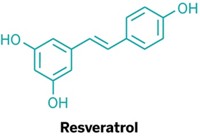Advertisement
Grab your lab coat. Let's get started
Welcome!
Welcome!
Create an account below to get 6 C&EN articles per month, receive newsletters and more - all free.
It seems this is your first time logging in online. Please enter the following information to continue.
As an ACS member you automatically get access to this site. All we need is few more details to create your reading experience.
Not you? Sign in with a different account.
Not you? Sign in with a different account.
ERROR 1
ERROR 1
ERROR 2
ERROR 2
ERROR 2
ERROR 2
ERROR 2
Password and Confirm password must match.
If you have an ACS member number, please enter it here so we can link this account to your membership. (optional)
ERROR 2
ACS values your privacy. By submitting your information, you are gaining access to C&EN and subscribing to our weekly newsletter. We use the information you provide to make your reading experience better, and we will never sell your data to third party members.
Biological Chemistry
Smoother Skin By Shrinking Cells
The fungal toxin cytochalasin B reduces skin cell size and could find its way into skin creams
by Bethany Halford
April 6, 2015
| A version of this story appeared in
Volume 93, Issue 14
The secret to younger-looking skin may be a fungal toxin called cytochalasin B. As we age, our skin cells become rigid and grow larger. Researchers led by Tufts University’s Igor Sokolov previously reported that cytochalasin B can restore elasticity to skin cells. Now, his team has shown that the toxin can shrink skin cells too (PLOS One 2015, DOI: 10.1371/journal.pone.0122774). Sokolov and coworkers applied a cream containing cytochalasin B to mice and found that it reduced the size of their skin cells by around 50%. The mice had smoother skin compared with mice that were treated with plain cream. Although cytochalasin B is a toxin, the compound appeared to have no ill effects on the mice, and there were no changes beneath their skin. The researchers also applied the compound to cultured human skin cells. Older skin cells shrunk 20–40% in response to the compound, whereas younger skin cells didn’t shrink significantly. Sokolov hopes to test the cytochalasin B cream on humans soon. In addition to imparting younger-looking skin, he notes, cytochalasin B could help scientists better understand the cellular aging process.




Join the conversation
Contact the reporter
Submit a Letter to the Editor for publication
Engage with us on Twitter